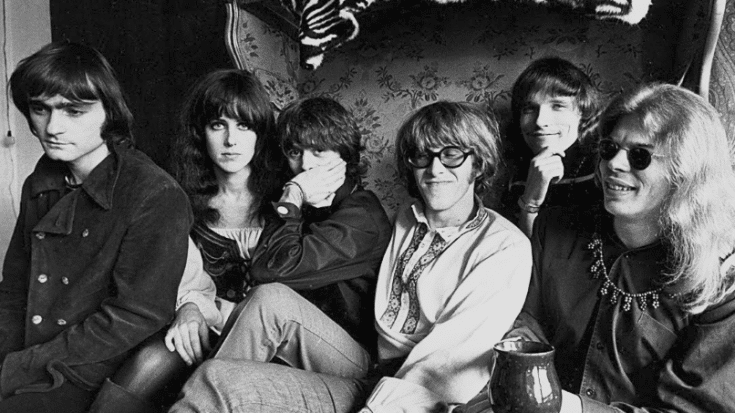10 Rock Bands That Switched Their Sound and Failed

via Georgy Porgy's Favorites / YouTube
Rock bands often face the challenge of evolving their sound while keeping their loyal fanbase happy. However, sometimes these attempts at reinvention fall flat, leaving fans scratching their heads and critics unimpressed. Here, we delve into ten rock bands that switched up their style, only to face failure.
10. Guns N’ Roses
View this post on Instagram
Guns N’ Roses, known for their electrifying guitar riffs and gritty rock sound, took a bold gamble with their 2008 album “Chinese Democracy.” This highly anticipated release marked a turning point for the band with the absence of iconic guitarist Slash and his trademark hooks. Unfortunately, the change in lineup and departure from their classic sound proved to be a letdown for fans longing for the familiar raw energy that defined Guns N’ Roses. Despite its ambitious approach and some standout tracks, “Chinese Democracy” failed to resonate and struggled to recapture the magic of their earlier years.
9. Fleetwood Mac
View this post on Instagram
When Fleetwood Mac set out to record “Time” in 1995, they faced a significant hurdle with most of the original lineup no longer present. Seeking to infuse their music with a more upbeat, rock and roll vibe, the band embarked on a new chapter. However, the departure of key members and the subsequent shift in style was met with disdain from both critics and fans. The attempt to adapt and evolve ultimately fell short, failing to capture the essence and magic that characterized Fleetwood Mac’s glory days. While “Time” showcased the band’s resilience, it served as a stark reminder of the challenges that come with reinventing oneself in the face of significant departures and changing musical landscapes.
8. Metallica
View this post on Instagram
Metallica, known for their intense thrash metal sound, surprised fans with their collaboration with Lou Reed on the album “Lulu” in 2011. This unexpected foray into a softer sound was a departure from Metallica’s signature style and left their thrash metal fanbase outraged. The album showcased the risks of experimenting with new genres and attempting to push boundaries. While the collaboration demonstrated the band’s willingness to explore different musical territories, it ultimately failed to resonate with their core audience, highlighting the importance of staying true to one’s roots in the face of experimentation.
7. Rush
View this post on Instagram
During the 1980s, Rush embraced change by incorporating shimmering synth breakdowns into their music, straying from their traditional guitar-driven sound. This deviation sparked controversy among fans, who accused the band of pandering to musical trends. Feeling the pressure, Rush returned to their roots and refocused on their trademark sound, reaffirming their commitment to their loyal fanbase. This episode served as a reminder that artists must strike a delicate balance between innovation and maintaining their core identity while navigating the ever-changing landscape of the music industry.
6. Jefferson Airplane
View this post on Instagram
Jefferson Airplane underwent a significant transformation over the years, evolving into Jefferson Starship and eventually simplifying their name to Starship. Alongside this shift in identity came a move towards more commercial music, which resulted in the release of “We Built This City.” Unfortunately, this track is widely regarded as a low point in the band’s career, symbolizing the pitfalls of sacrificing artistic integrity for mainstream success. The band’s transition from their psychedelic roots to a more commercial sound left many fans disappointed and longing for the raw and authentic music that defined Jefferson Airplane’s earlier work.
5. U2
View this post on Instagram
Even legendary bands like U2 are not immune to setbacks. In 1997, U2 released “Pop,” a bold exploration of new sonic territory. However, the album struggled to find its audience and failed to resonate with fans. Citing time constraints as a hindrance, the band felt that they were unable to fully realize their ambitious vision. Despite their enormous talent and reputation, “Pop” became one of their worst-selling albums, underscoring the challenges artists face when pushing boundaries and taking risks.
4. Def Leppard
View this post on Instagram
As the grunge era ushered in a new wave of music, established bands like Def Leppard sought to adapt and remain relevant. Their darker turn with the album “Slang” in 1996 demonstrated a departure from their signature sound. Unfortunately, this shift felt forced and unnatural, risking their hard-earned reputation as rock royalty. While experimentation can be an essential part of artistic growth, it requires a delicate balance to retain the core essence that made a band successful in the first place.
3. Billy Idol
View this post on Instagram
Billy Idol, known for his rebellious image and distinctive sound, felt the pressure to stay relevant in the changing musical landscape of the 1990s. In an attempt to capture the grunge and nu metal culture, Idol ventured into new territory with his album “Cyberpunk” in 1993. Laden with studio effects and incorporating a futuristic theme, the album failed to capture the essence of Idol’s earlier successes. The departure from his classic style alienated some fans and marked a challenging period in Billy Idol’s career.
2. The Who
View this post on Instagram
After the tragic death of their drummer Keith Moon, The Who faced the daunting task of carrying on without one of their central figures. Their album “It’s Hard” in 1982 reflected a lack of commitment and focus, as guitarist Pete Townshend was preoccupied with his solo projects at the time. The result was a lackluster effort that failed to capture the spirit and energy that defined The Who’s earlier work. The struggles faced by the band during this period serve as a reminder of the profound impact a loss of a key member can have on a group’s dynamic and creative output.
1. Genesis
View this post on Instagram
With the departure of frontman Phil Collins, Genesis faced a crucial moment of reinvention. In 1997, they enlisted Ray Wilson for their album “Calling All Stations.” However, the absence of Collins and a decline in quality control led to a disappointing album that failed to meet expectations. The loss of such a prominent figure in the band, coupled with a lack of cohesion and direction, hindered Genesis’ ability to recapture the magic they had once achieved. “Calling All Stations” represents a missed opportunity for a successful transition and serves as a cautionary tale about the challenges of maintaining a band’s identity in the face of significant lineup changes.


















